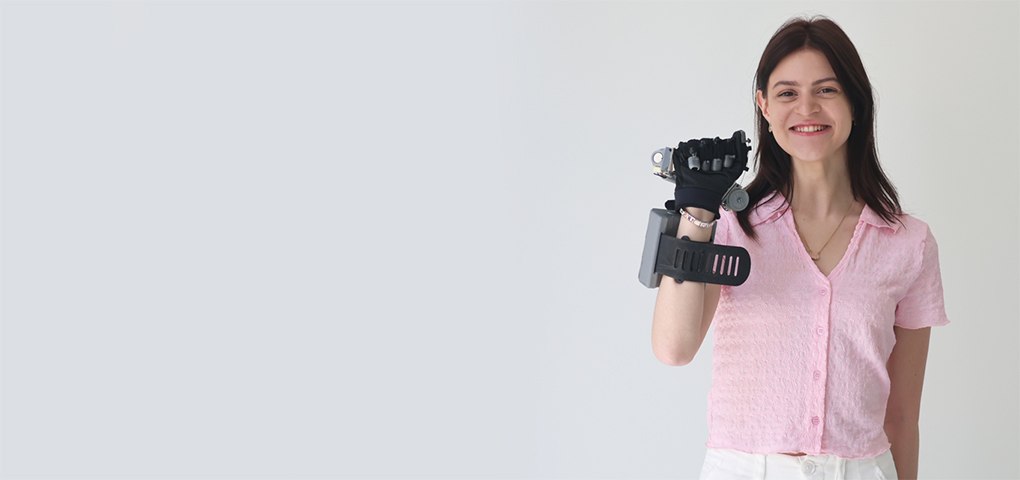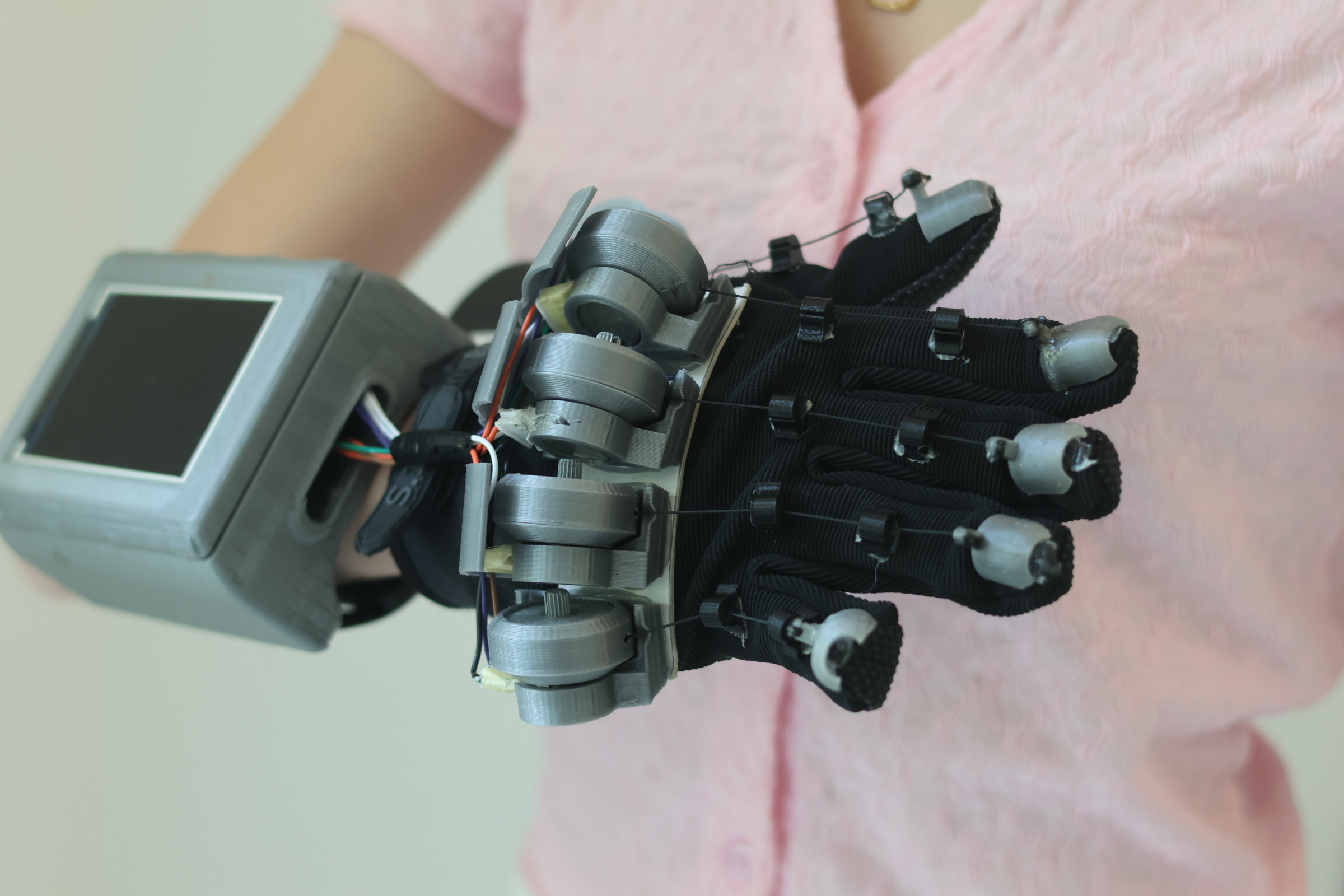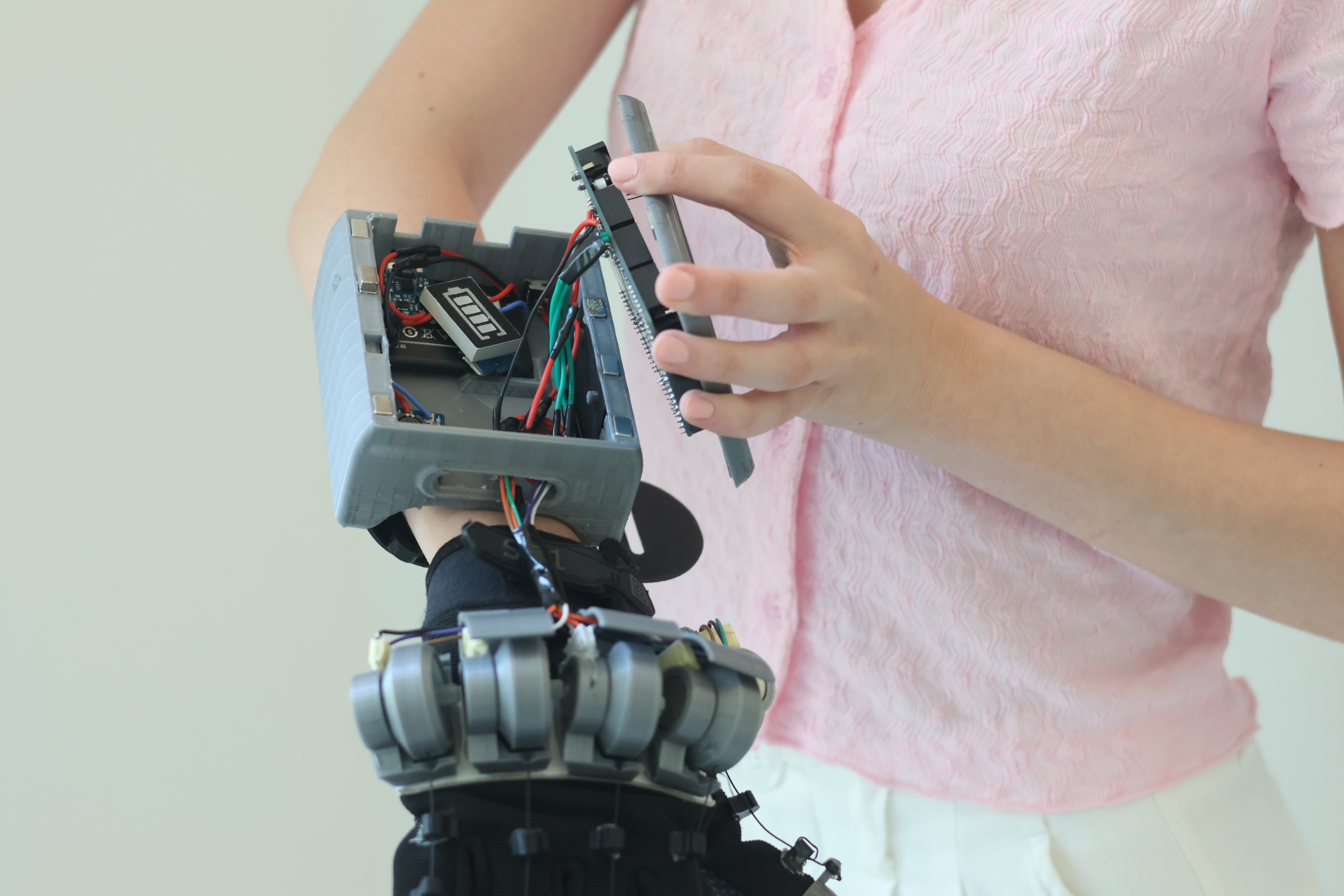For community engagement and inclusivity, it is essential to create an environment that is easily and fully adaptable for everyone. While this is a widely accepted notion, the new generation is particularly adept at seeking real design solutions to challenges, ensuring that inclusivity goes beyond mere agreement.
This Design Institute blog presents young design thinkers who came together to address a real problem. They went through all stages of designing to create a smart glove for the digitization and translation of sign language, facilitating communication between different members of society.
The journey began after watching a video of a hearing-impaired girl in an entrepreneurship class, which intuitively led the team of young thinkers to look for ways to solve this problem. They deepened their knowledge, created prototypes, felt the pressure of the task, and ultimately developed a smart glove that understands sign language and promotes inclusive communication.
Being friends from school, they were well-acquainted with each other, so they managed to form a startup, pitch their ideas, and convince others that despite their inexperience, they could successfully tackle this challenging task. The team was mentored by their teacher, Tamar Morgoshia, who provided significant support throughout this difficult process.
The student-founded startup faced numerous challenges in a short time frame, having only a few weeks from concept to implementation. Inexperience, lack of access to specific technologies, limited resources, and limited knowledge in robotics made the process even more complicated. However, simultaneously to learning, the motivation to create a completely new product kept the team going.
Believing in their mission, they were able to convince others and garner support. With the backing of Technopark, their ideas were turned into prototypes. The young entrepreneurs ensured they tested their product directly with the target audience, gathering real and constructive feedback.
In an interview with us, Nutsa Nodia emphasizes the importance of meeting directly with students who have hearing impairments.
"Visiting the 203rd Public School made us aware of the barriers in our society. It helped us understand what it means when you can't fully adapt to people and share what you have to say. By getting to know students with hearing problems and listening to their advice, we realized that our project, which started with a childish desire to win the competition, could help solve a public problem."
"We created the first prototype of the glove using potentiometers, attaching a screen to it. Based on the hand's gestures, threads moved to display words on the screen. However, we were limited in this mechanic, not allowing us to translate more than five gestures. We then bought flex sensors, which perceive hand movements in space and can write words more accurately. We also reduced the screen size and added a speaker to make the glove work both ways and it was then fully inclusive."
A startup created by school students achieved great success at the European entrepreneurship festival, Junior Achievement Europe Innovation of the Year, becoming the first winner of the award established by Johnson & Johnson.
Following the competition, work on the prototype continues. The team of future students now plans to deepen their academic knowledge in various directions to grow their company, attract more funds, and create a more sophisticated product.
Their story serves as motivation for people who believe that everyone can contribute to making life better. This requires thinking like a designer and having the right tools, whether they are skills or knowledge in different disciplines.
At this event, you will get to hear stories, everyday challenges, and experiences of people with disabilities and their family members in Georgia, showcasing how their lives are being changed for the better.
For 15 years, MAC Georgia (McLain Association for Children, Georgia) has operated with the goal of ensuring that everyone, regardless of their abilities, has access to the resources and support they need to reach their full potential. With willpower, perseverance, and the help of many people, including the efforts of the organization's team members and partners, MAC Georgia is actively changing the current situation.
MAC Georgia is a partner of the Design Institute and, with its support, has established a scholarship for the program of Foundations of Design.
Blog by Nini Papashvili
სხვა ბლოგები












